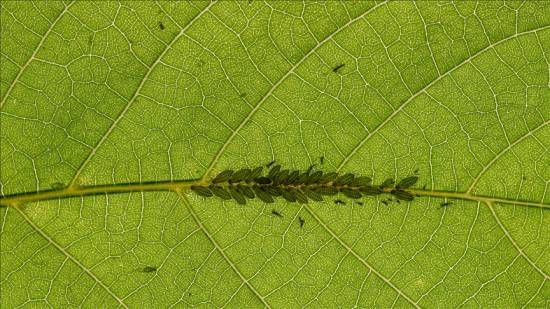Invasive insects in US could kill 1.4M trees, cost $900M by 2050: Study Featured
In a first-of-its-kind study, researchers are predicting that invasive insects could wreak havoc on more than a million city trees in the US over the next 30 years, and the damage could be costly.
The findings published Monday in the British Ecological Society’s Journal of Applied Ecology indicate 1.4 million street trees across America will be killed by invasive insects over the next three decades, causing $900 million in damage and replacement costs.
"These results can hopefully provide a cautionary tale against planting a single species of tree throughout entire cities, as has been done with ash trees in North America," said lead author of the study Dr. Emma Hudgins from McGill University.
The emerald ash borer (Agrilus planipennis) is predicted to destroy 90% of the 1.4 million trees.
The research indicates this particular invasive species "is expected to kill virtually all ash trees in more than 6,000 urban areas."
New York, Chicago and Milwaukee are expected to be hit hardest due to having very high numbers of ash trees. In addition, these cities are in the recent or near-future path of the emerald ash borer.
Researchers say these findings can help urban tree managers with future planning and development, including knowing which species of trees to buy, where to plant them, and which trees will be at greatest risk from invasive insects.
"Increasing urban tree diversity provides resilience against pest infestations," said Hudgins.
The study also forecasts the future of invasive species which have not yet arrived in the US, like the Asian wood boring citrus longhorned beetle (Anoplophora chinensis). Researchers indicate these pests pose the highest threat, potentially costing $4.9 billion in damage over the next 30 years.
"This paper shows that unless we plant a variety of tree species in our cities, urban trees are seriously at risk from invasive pests," said Prof. Jane Memmott of the University of Bristol, who was not involved in the study.
"The take home message to urban planners is to plant multiple species in cities rather than focus on just a few familiar species," added Memmott. "It’ll keep trees wonderful, and it will keep them in our cities."/aa


